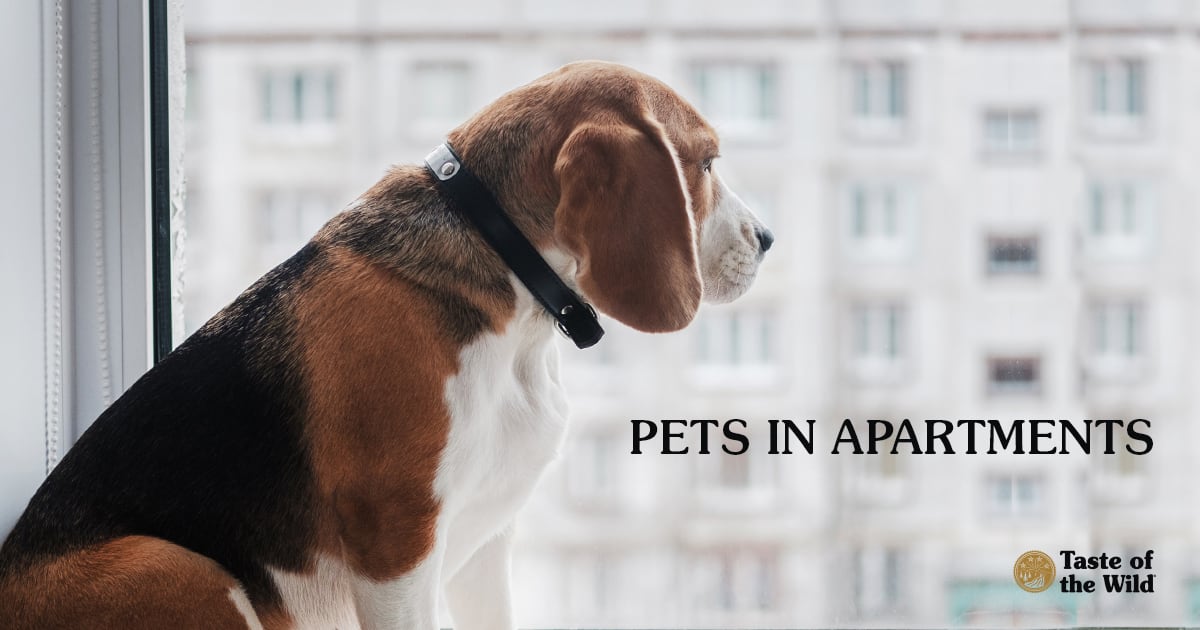
Good fences, they say, make good neighbors. But when residents are in closer proximity, with a simple wall for separation, good pets are what really matter. Making sure your apartment dog or cat is quiet and well behaved can go a long way to creating friendly, peaceful relationships with the folks next door.
Here are some tips to help you be a great apartment-pet owner.
Make your pet comfortable. Pets are often creatures of habit, and moving can be unsettling. After you’ve pet-proofed the apartment, make sure your pet has a comfy bed, your cat has a climbing tree and there are plenty of toys to go around. Consider pheromone diffusers in the first weeks to help calm your pet.
Introduce your pet to neighbors. Make friends with those who share a wall or hallway with you. Make it clear that you want to be a good neighbor (and avoid tangles with the landlord) by providing your phone number and encouraging them to call you if they have any concerns about your pet.
Follow apartment rules. If your apartment has pet breed or weight restrictions, stay within them. Also follow any regulations about having pets in the common areas.
Be respectful of other tenants. No matter how adorable your pet is, some adults and children may be afraid of or allergic to them. Always keep your dog on a leash in the hallway and ask if it’s OK before entering the elevator with a dog. For the same reasons, don’t allow your cat to wander the hallways. Inside or outside, pick up pet feces immediately and dispose of them properly.
Keep training your dog. Dogs of any age can learn to be polite around neighbors. Teach your dog that sitting calmly is a better alternative than jumping up on people. Your dog should also be able to interact peacefully with other dogs in the building. Always ask before letting your dog approach another dog, in case the other pet is fearful or aggressive.
Exercise your pet. As the saying goes, a tired dog is a well-behaved dog. Help your dog “work out the wiggles” with daily walks or trips to the dog park. If you’re away for the day, hire a dog walker to stop by or consider a play date at doggy day care. You can even adorn your pet with an activity monitor so you can make sure they’re meeting their daily step quota.
Keep ’em healthy. To protect your pet and others in the building, make sure yours is current on all vaccines. Same goes for parasite control: Talk to your veterinarian about how to protect your pet from gastrointestinal worms and heartworm, fleas and ticks. Spaying or neutering can also help reduce territorial marking, aggressive behaviors and feline yowling that lasts all day.
Banish barking. If you’re going to be away, keep boredom at bay with food puzzles and toys for your pet (just make sure none can be accidentally chewed up or swallowed). Pet cameras, such as the Furbo, can deliver a real-time barking alert to your phone. Some systems enable you to talk to your pet and even toss it a treat. If your pet is showing signs of separation anxiety, talk to your veterinarian about behavior modification and other possible treatments.
With a little effort, you can help everyone in your building love your pet, too.
The information in this blog has been developed with our veterinarian and is designed to help educate pet parents. If you have questions or concerns about your pet's health or nutrition, please talk with your veterinarian.
